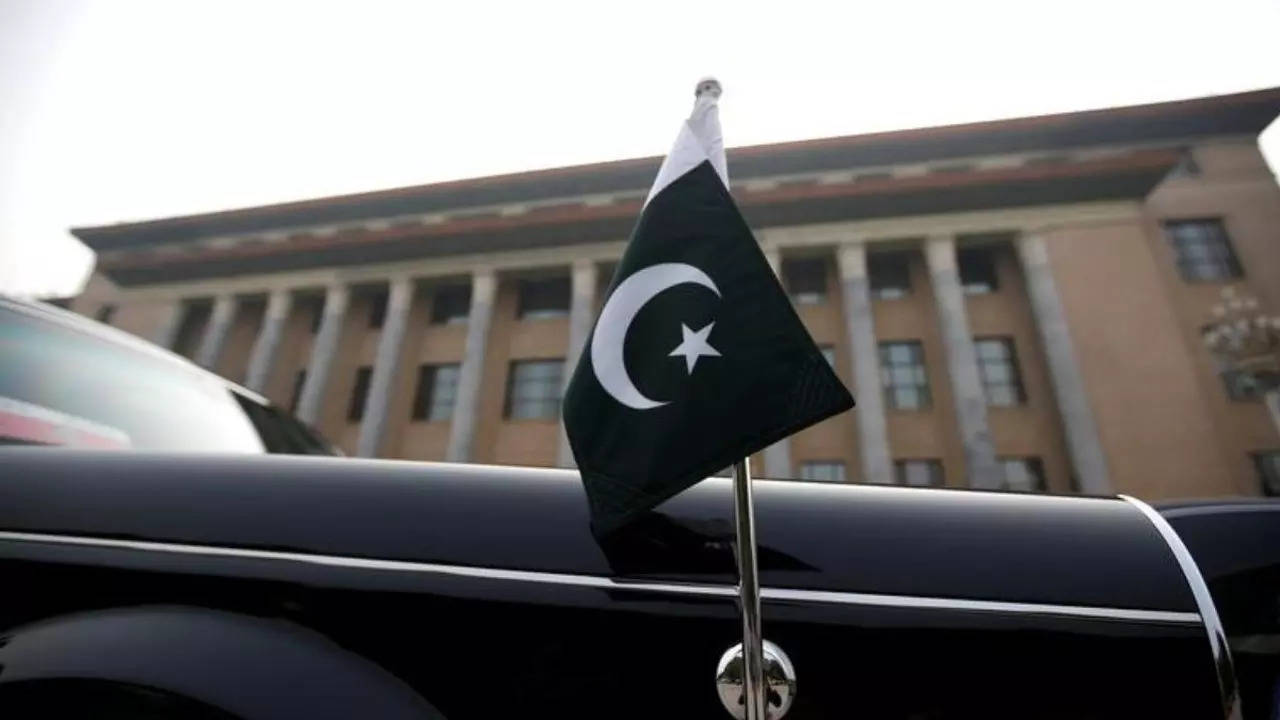Islamabad: The International Monetary Fund (IMF) has raised serious objections to this budget of pakistan For 2023-24, it is becoming less likely that the global lender will revive the loan program that the cash-strapped country is seeking to meet its international debt obligations.
Since the IMF program – which has been delayed over a policy framework since late last year – is due to expire in two weeks, on June 30, Pakistan has reached an agreement with the IMF to implement the measures within a period of time. That would not only lead to the disbursement of $1.2 billion, part of a $6.7 billion bailout package, but also unlock the flow of funds from other multilateral lenders and friendly countries.
The IMF, however, has stuck to its tough conditions, blocking the withdrawal of funds as it makes it even more difficult for Islamabad to raise revenue.
The government led by Prime Minister Shahbaz Sharif, however, is making a last-ditch effort to revive the country’s IMF program, with a $2 billion financing gap and its exchange rate policy among the biggest hurdles.
In a last-ditch effort, Finance Minister Ishaq Dar held a virtual meeting with IMF mission chief Nathan Porter on Tuesday to secure the IMF programme. The meeting ended inconclusive. Junior Finance Minister Aisha Ghaus Pasha said that the IMF was not satisfied with the budgetary framework for 2023-24 and another round of meetings would now be held to address the IMF’s concerns.
Without the IMF on board, the risk of Pakistan defaulting on its external debt repayments has intensified. After repaying a $1 billion commercial loan to China before its maturity, the country’s foreign reserves have been severely reduced to below $3 billion.
Lower reserves, which provide cover for barely three weeks’ worth of imports, could add to pressure on the rupee against the US dollar, which was trading at Rs 287 against the US dollar at the interbank market on Wednesday.
Moody’s Investors Service on Wednesday warned that Pakistan is at an increased risk of failing to restart its bailout program with the IMF placing the country close to sovereign default. “There are growing risks that Pakistan may be unable to meet the IMF program that expires at the end of June,” said Grace Lim, sovereign analyst at the ratings company in Singapore.
“Without the IMF program, Pakistan could default because it has very weak reserves,” Lim was quoted as saying by Bloomberg.
“Pakistan’s financing options beyond June are highly uncertain, even as its external repayments remain significant over the next few years,” Lim said. He added that continued engagement with the IMF would support additional financing from other multilateral and bilateral partners, which could reduce default risk.
Pakistan is due about $23 billion in external debt payments for the fiscal year 2023-24 starting in July. This amount is roughly five times its reserves and much of it is drawn from concessional multilateral and bilateral sources.
Since the IMF program – which has been delayed over a policy framework since late last year – is due to expire in two weeks, on June 30, Pakistan has reached an agreement with the IMF to implement the measures within a period of time. That would not only lead to the disbursement of $1.2 billion, part of a $6.7 billion bailout package, but also unlock the flow of funds from other multilateral lenders and friendly countries.
The IMF, however, has stuck to its tough conditions, blocking the withdrawal of funds as it makes it even more difficult for Islamabad to raise revenue.
The government led by Prime Minister Shahbaz Sharif, however, is making a last-ditch effort to revive the country’s IMF program, with a $2 billion financing gap and its exchange rate policy among the biggest hurdles.
In a last-ditch effort, Finance Minister Ishaq Dar held a virtual meeting with IMF mission chief Nathan Porter on Tuesday to secure the IMF programme. The meeting ended inconclusive. Junior Finance Minister Aisha Ghaus Pasha said that the IMF was not satisfied with the budgetary framework for 2023-24 and another round of meetings would now be held to address the IMF’s concerns.
Without the IMF on board, the risk of Pakistan defaulting on its external debt repayments has intensified. After repaying a $1 billion commercial loan to China before its maturity, the country’s foreign reserves have been severely reduced to below $3 billion.
Lower reserves, which provide cover for barely three weeks’ worth of imports, could add to pressure on the rupee against the US dollar, which was trading at Rs 287 against the US dollar at the interbank market on Wednesday.
Moody’s Investors Service on Wednesday warned that Pakistan is at an increased risk of failing to restart its bailout program with the IMF placing the country close to sovereign default. “There are growing risks that Pakistan may be unable to meet the IMF program that expires at the end of June,” said Grace Lim, sovereign analyst at the ratings company in Singapore.
“Without the IMF program, Pakistan could default because it has very weak reserves,” Lim was quoted as saying by Bloomberg.
“Pakistan’s financing options beyond June are highly uncertain, even as its external repayments remain significant over the next few years,” Lim said. He added that continued engagement with the IMF would support additional financing from other multilateral and bilateral partners, which could reduce default risk.
Pakistan is due about $23 billion in external debt payments for the fiscal year 2023-24 starting in July. This amount is roughly five times its reserves and much of it is drawn from concessional multilateral and bilateral sources.
